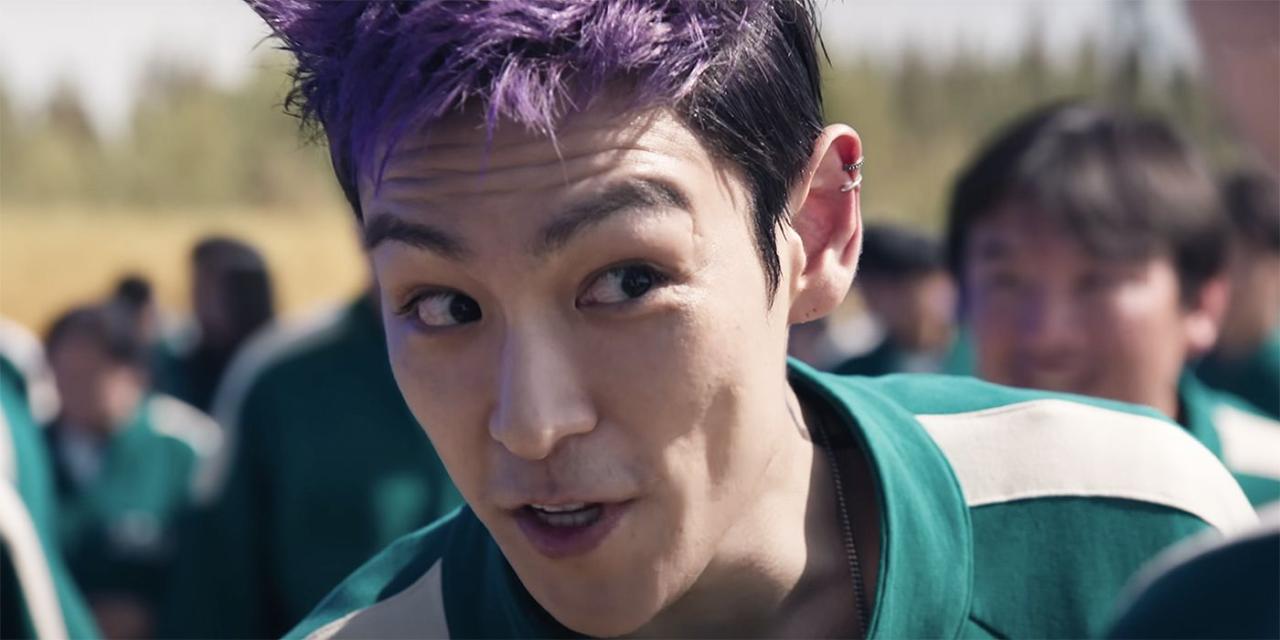Squid Game Histoire Vraie? Is the wildly popular show a reflection of harsh South Korean realities? This exploration delves into the socioeconomic conditions, traditional games, and psychological pressures that resonate with the show’s themes. We’ll examine the stark parallels between the fictional competition and real-life struggles, exploring the impact of debt, social inequality, and the human cost of extreme competition.
Prepare for a closer look at the inspiration behind the gripping narrative.
We’ll analyze the show’s portrayal of violence, comparing it to actual instances of violence and exploitation in South Korea. Furthermore, we’ll discuss the global impact of Squid Game, its critical reception, and the social conversations it ignited. By examining real-life examples of desperation, high-stakes competition, and social inequality, we’ll gain a deeper understanding of the complex issues at play.
The Socioeconomic Realities Mirrored in Squid Game
Squid Game’s shocking depiction of desperation and violent competition resonates with underlying socioeconomic issues in South Korea. The show’s popularity stems partly from its reflection of real-life struggles faced by many, highlighting the stark realities of debt, inequality, and the pressure to survive.
South Korean Debt and Social Inequality
South Korea boasts a high level of economic development, yet significant socioeconomic disparities exist. A substantial portion of the population struggles with crippling debt, often trapped in a cycle of high-interest loans with little hope of escape. This vulnerability is particularly acute among low-income individuals and those lacking robust social safety nets. The pressure to succeed financially, coupled with limited social support, contributes to the desperation portrayed in the show.
Examples include the rise of “debt-ridden youth” facing unemployment and insurmountable student loan burdens, and the increasing number of elderly individuals forced into poverty due to inadequate pension systems and healthcare costs. These circumstances mirror the desperate situations of many Squid Game participants, highlighting the show’s chillingly realistic portrayal of societal pressures.
So you’re wondering about “Squid Game histoire vraie”? The show’s brutal games certainly sparked debate about real-life societal pressures. Interestingly, the sheer scale and spectacle of the show reminds me of the incredible visual artistry of the shanghai dragon drone show , a completely different kind of spectacle, but equally impressive in its coordinated display. Thinking about the “Squid Game” narrative, it makes you wonder about the different ways we create and witness breathtaking displays of power and skill.
The desperation depicted in the show, where characters are willing to risk their lives for a chance at financial freedom, finds a parallel in documented cases of individuals resorting to extreme measures, such as illegal gambling or risky investments, in a desperate attempt to alleviate their debt burden. The show’s depiction is a stark exaggeration, but the underlying desperation is a tangible reality for many.
Traditional Korean Children’s Games and Their Cultural Context
The children’s games featured in Squid Game, while deadly in the show’s context, are rooted in Korean cultural history. Understanding these games’ origins and significance provides valuable insight into the show’s thematic choices.
Many traditional Korean children’s games emphasize cooperation, skill, and fair play. These games often reflected aspects of Korean society and culture, with their rules and strategies evolving over generations. Examples include Yut Nori (a board game using sticks), Neolttwigi (seesaw), and Gukgeori (a type of tag). These games were often played in communal settings, fostering social interaction and shared experiences.
So, you’re wondering about “Squid Game histoire vraie”? While the show’s fictional, its themes of desperation resonate with real-world struggles. Think about the sheer scale of coordinated effort, like the incredible visuals of the shanghai new year drone show , but instead of celebration, imagine that level of organization applied to something far darker. It makes you consider how easily stunning spectacle can mask underlying societal problems, just like the flashy games in Squid Game hide a brutal truth.
| Game Name | Squid Game Equivalent | Historical Context | Cultural Significance |
|---|---|---|---|
| Ddakji (folded paper game) | First game in Squid Game | Played for centuries, often involving low-stakes gambling. | Represents skill, chance, and social interaction. |
| Mugunghwa kkochi pieotseumnida (Korean version of “Red Light, Green Light”) | Second game in Squid Game | A common childhood game, testing obedience and quick reflexes. | Symbolic of societal rules and consequences of disobedience. |
| Neolttwigi (seesaw) | No direct equivalent, but similar themes of balance and cooperation. | A traditional game promoting teamwork and physical coordination. | Highlights the importance of collaboration in achieving a goal. |
| Yut Nori (stick game) | No direct equivalent, but similar themes of chance and strategy. | Played during holidays, reflecting Korean social structure and hierarchy. | Represents luck, strategy, and social dynamics. |
The Psychological Dynamics of Extreme Competition
The psychological toll of high-stakes competition is a central theme in Squid Game. Understanding the psychological pressures faced by the participants provides a deeper understanding of their actions and choices.
So you’re wondering about “Squid Game histoire vraie”? While the show’s fictional, the harsh realities of debt and societal inequality it depicts are sadly real. Think about the sheer scale and precision needed for something like the china new year drone show , a dazzling display of technology. That level of coordination is fascinating, but it highlights how much human ingenuity can be applied to both breathtaking spectacles and devastating systems of oppression, which is a key theme in “Squid Game histoire vraie”.
The survival instinct, coupled with immense pressure and the fear of death, leads to unpredictable behavior. Participants experience extreme stress, anxiety, and moral dilemmas. The ethical compromises made to survive highlight the complexities of human nature under duress. A hypothetical scenario: imagine a group of individuals stranded on a deserted island with limited resources; the competition for survival would lead to complex psychological dynamics and potential ethical conflicts.
Violence in Squid Game and its Societal Implications

The show’s depiction of violence is graphic and unflinching. Analyzing the types of violence and their portrayal provides insight into the show’s commentary on societal issues.
- Physical Violence: The games themselves are inherently violent, resulting in death and injury. This mirrors real-world violence, albeit on a far less extreme scale.
- Psychological Violence: The constant threat of death and the manipulation of participants create intense psychological distress. This reflects the psychological impact of societal pressures and systemic inequalities.
- Systemic Violence: The game itself represents a system designed to exploit vulnerable individuals, reflecting real-world issues of social injustice and exploitation.
While the level of violence in Squid Game is fictionalized, it echoes real-world issues of violence, exploitation, and social injustice. The show serves as a stark reminder of the potential consequences of unchecked greed and societal inequality.
Squid Game’s Global Impact and Cultural Reception

Squid Game’s global popularity sparked widespread discussion about its themes and implications. The show’s impact on popular culture is undeniable.
- Global Phenomenon: Squid Game became a cultural sensation, breaking viewership records on Netflix and sparking global conversations.
- Critical Acclaim: The show received significant critical acclaim for its direction, acting, and social commentary.
- Social Commentary: Squid Game ignited discussions about wealth inequality, social injustice, and the human condition.
- Influence on Media: The show’s success inspired numerous parodies, analyses, and discussions across various media platforms.
Illustrative Examples of Extreme Situations Mirroring Squid Game, Squid game histoire vraie

Several real-world situations parallel the desperation and high-stakes competition depicted in Squid Game. These examples illustrate the show’s resonance with actual human experiences.
For instance, the plight of individuals trapped in debt bondage in developing countries mirrors the desperation of the Squid Game participants. These individuals often face exploitative labor conditions and limited opportunities for escape. The physical and emotional toll is immense, reflecting the extreme pressure faced by the characters in the show. Similarly, high-stakes competitions like reality TV shows, though not life-threatening, demonstrate the psychological pressure and ethical compromises individuals may make to achieve victory.
The widening gap between the wealthy and the poor in many societies, including South Korea, illustrates the extreme social inequality portrayed in the show. This inequality creates a system where opportunities are limited for many, forcing individuals into desperate situations to survive.
Last Point: Squid Game Histoire Vraie
Ultimately, “Squid Game Histoire Vraie” reveals a chilling truth: while the show’s depiction of a deadly competition is fictional, the desperation and social inequalities it portrays are painfully real. The show serves as a powerful commentary on the pressures of modern society, prompting crucial conversations about debt, inequality, and the lengths people will go to survive. By understanding the real-world issues reflected in the show, we can better address the systemic problems that contribute to such extreme situations.
General Inquiries
Was Squid Game inspired by a true story?
While not based on a single true story, Squid Game draws inspiration from various aspects of South Korean society, particularly its struggles with debt and social inequality. The games themselves are inspired by traditional Korean children’s games.
How accurate is the show’s depiction of South Korean society?
The show exaggerates certain aspects for dramatic effect, but it highlights real issues like high levels of debt, economic disparity, and social pressure in South Korea. The level of violence is fictionalized, but the underlying themes of desperation and exploitation are rooted in reality.
What is the cultural significance of the games in Squid Game?
The games used in the show are based on traditional Korean children’s games, highlighting a contrast between the innocent past and the brutal present. This juxtaposition underscores the themes of societal decay and the loss of innocence.
